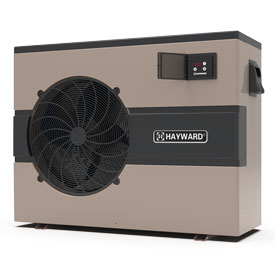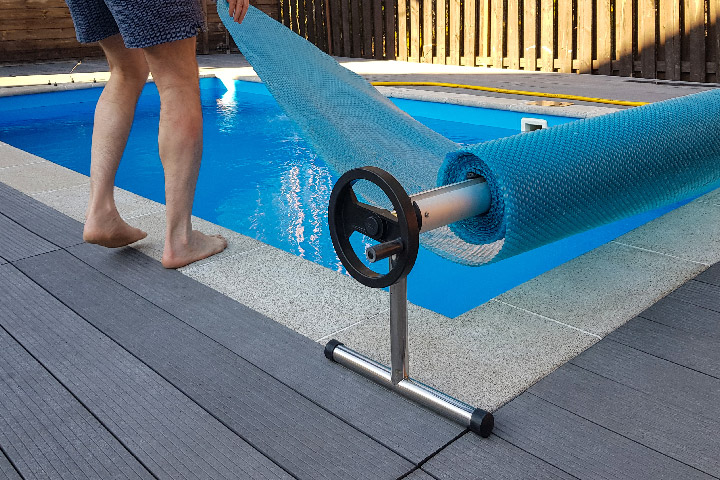
Troubleshooting Gas Pool Heaters: Diagnosing and Repairing Common Issues
A Comprehensive Guide for Homeowners to Troubleshoot, Diagnose, and Repair Gas Pool Heaters
Introduction
Gas pool heaters are a popular option for homeowners looking to extend their swimming season or maintain a comfortable pool temperature. However, like any mechanical system, gas pool heaters can experience issues that may affect their performance or cause them to malfunction. In this article, we will discuss the common problems that can arise with gas pool heaters, how to troubleshoot these issues, and the steps to diagnose and repair them.
Common Gas Pool Heater Issues
- Heater Fails to Ignite: If your gas pool heater doesn’t ignite, it may be due to a lack of fuel, a faulty ignition system, or a problem with the control module.
- Insufficient Heating: If your pool heater is running but not providing enough heat, it could be due to an improperly sized heater, poor water flow, or a malfunctioning component.
- Heater Cycles On and Off: If your heater is constantly cycling on and off, it may be caused by poor water flow, a dirty filter, or a faulty pressure switch.
- Unusual Noises: Strange noises coming from your heater can indicate issues with the fan, burners, or heat exchanger.
- Leaking Water: Leaking water from your pool heater may be caused by a damaged heat exchanger, loose connections, or cracked pipes.
Troubleshooting Gas Pool Heater Issues
- Check the Power and Fuel Supply: Ensure that the heater is properly connected to power, the gas valve is open, and there is an adequate supply of fuel.
- Inspect the Ignition System: Examine the pilot light or electronic ignition system for signs of damage or malfunction. Clean any debris or dirt that may be affecting the ignition system.
- Examine the Control Module: Check the control module for any error codes or signs of damage. Reset the module if necessary, following the manufacturer’s instructions.
- Verify Proper Water Flow: Ensure that your pool pump is functioning correctly and that the water flow through the heater is sufficient. Clean or backwash your pool filter if needed.
- Inspect Components: Examine the heater’s components, such as the burners, heat exchanger, and pressure switch, for any signs of damage or wear.
Diagnosing and Repairing Gas Pool Heater Issues
- Ignition Problems: If your heater fails to ignite, replace any damaged or malfunctioning components, such as the ignition system or control module.
- Insufficient Heating: If your heater is not providing enough heat, consider upgrading to a properly sized heater or improving water flow by cleaning your filter or addressing any issues with your pool pump.
- Heater Cycling On and Off: If your heater is cycling on and off, clean your filter or address any issues with water flow. Replace a faulty pressure switch if necessary.
- Unusual Noises: If your heater is making strange noises, inspect the fan, burners, and heat exchanger for any signs of damage or wear. Replace any damaged components as needed.
- Leaking Water: If your heater is leaking water, tighten any loose connections or replace any cracked pipes. If the heat exchanger is damaged, it may need to be replaced.
Conclusion
Troubleshooting, diagnosing, and repairing gas pool heater issues can help you maintain a comfortable pool temperature and extend the life of your heater. By regularly inspecting and maintaining your gas pool heater, you can prevent many common issues and ensure that your pool remains inviting and comfortable for you and your family. Keep in mind that some repairs may require the expertise of a qualified professional, especially when dealing with gas lines or electrical systems. In such cases, it’s important to consult with a licensed pool technician or heating professional to ensure the safe and proper repair of your gas pool heater.
Safety Precautions
Before attempting any repairs or maintenance on your gas pool heater, make sure to follow these safety precautions:
- Turn off the power and gas supply: Always shut off the electricity and gas supply to the heater before working on it. This will help prevent accidents and ensure your safety.
- Allow the heater to cool down: Give your heater enough time to cool down before working on it. Touching hot components can result in burns or other injuries.
- Wear protective gear: Wear gloves and eye protection when working on your gas pool heater to protect yourself from any debris or sharp objects.
- Ventilate the area: If you’re working with gas, make sure to properly ventilate the area to avoid the buildup of potentially dangerous fumes.
- Consult the owner’s manual: Always refer to the manufacturer’s instructions and guidelines for your specific gas pool heater model to ensure that you’re following the proper procedures for troubleshooting, diagnosing, and repairing issues.
In conclusion, understanding the common issues that can arise with gas pool heaters, as well as knowing how to troubleshoot, diagnose, and repair them, can help homeowners maintain an efficiently functioning heater and ensure a comfortable swimming environment. By following safety precautions and seeking professional help when needed, you can keep your gas pool heater in top shape and extend its lifespan.




